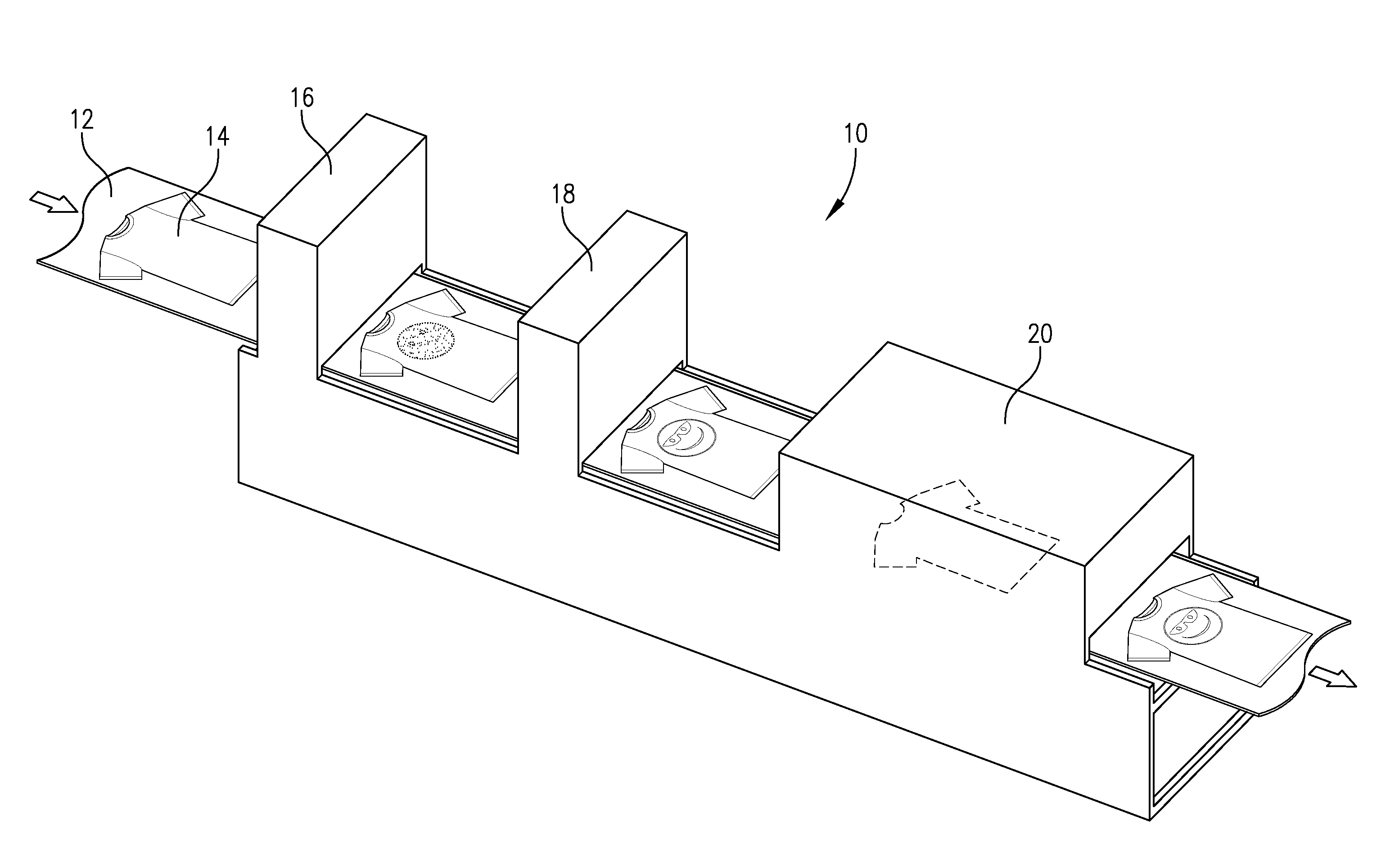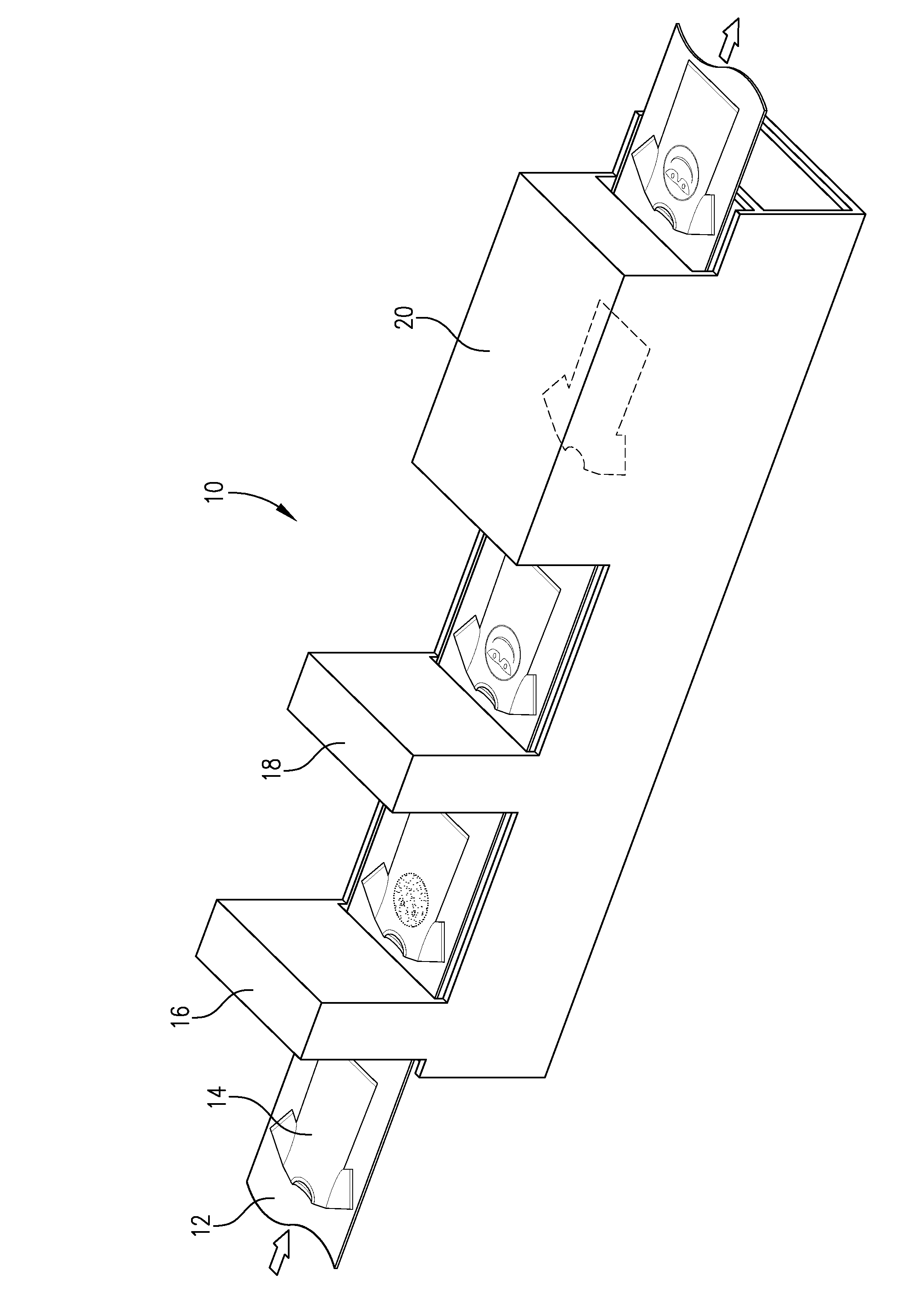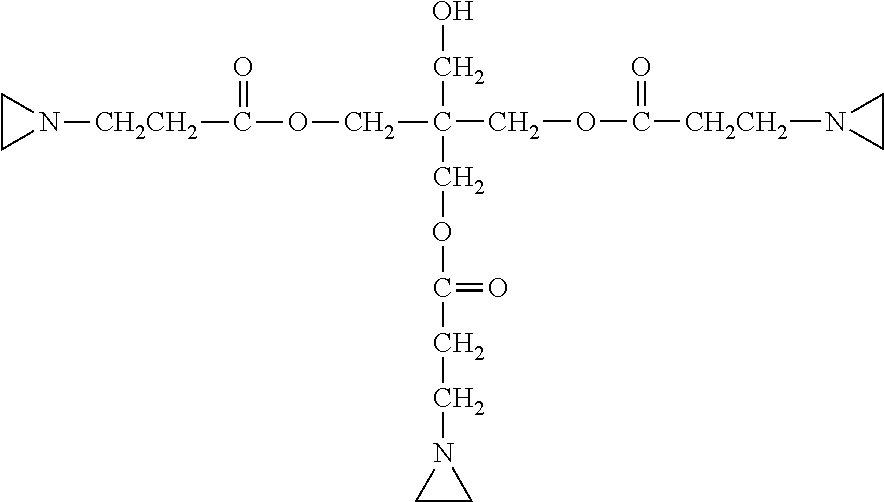In-line digital printing system for textile materials
a textile material and digital printing technology, applied in the direction of dyeing process, inks, coatings, etc., can solve the problems of high cost of screen printing process preparation, inability to meet the requirements of single or small production runs, and inability to screen printing. to achieve the effect of efficient and economical
- Summary
- Abstract
- Description
- Claims
- Application Information
AI Technical Summary
Benefits of technology
Problems solved by technology
Method used
Image
Examples
example 1
[0049]
ComponentDescriptionAmount (wt. %)ENCOR 2722Acrylic resin latex (Arkema)48.62TEOATriethanolamine (Barton)0.2DEIONIZEDWater12WATERHPD 296Acrylic resin (BASF)7.5PEG 300Polyethylene glycol (BASF)10.321225 WHITEWater-based pigment dispersion20DISPERSION(Polymeric Imaging)DIACETONEViscosity modifier (Barton)1ALCOHOLBYK 024Polysiloxane defoamer0.38(BYK Chemie)
example 2
[0050]
ComponentDescriptionAmount (wt. %)ENCOR 627Acrylic resin latex (Arkema)55.12TEOATriethanolamine (Barton)0.2DEIONIZEDWater5WATERHPD 296Acrylic resin (BASF)7.5PEG 300Polyethylene glycol (BASF)9.321225 WHITEWater-based pigment dispersion20DISPERSION(Polymeric Imaging)DIACETONEViscosity modifier (Barton)1ALCOHOLBYK 024Polysiloxane defoamer0.38(BYK Chemie)
example 3
[0051]
ComponentDescriptionAmount (wt. %)NEOCAR 850Acrylic resin latex (Arkema)50.92DPNPDipropylene glycol n-propyl3.7ether (Dow)TEOATriethanolamine (Barton)0.2DEIONIZEDWater7WATERHPD 296Acrylic resin (BASF)7.5PEG 300Polyethylene glycol (BASF)9.321225 WHITEWater-based pigment dispersion20DISPERSION(Polymeric Imaging)DIACETONEViscosity modifier (Barton)1ALCOHOLBYK 024Polysiloxane defoamer0.38(BYK Chemie)
[0052]FIG. 1 illustrates an exemplary in-line printing system 10 that may be used in one embodiment of the present invention. System 10 comprises a conveyor 12 configured to receive one or more pieces of a textile material. In this particular embodiment, the system 10 is configured to print images on articles of clothing, namely, T-shirts 14. Conveyor 12 directs T-shirt 14 through a base application station 16 in which a base application is applied thereto in any manner noted above. As noted previously, base application station 16 may comprise an inkjet printer or apparatus configured ...
PUM
| Property | Measurement | Unit |
|---|---|---|
| temperature | aaaaa | aaaaa |
| temperature | aaaaa | aaaaa |
| temperature | aaaaa | aaaaa |
Abstract
Description
Claims
Application Information
 Login to View More
Login to View More - R&D
- Intellectual Property
- Life Sciences
- Materials
- Tech Scout
- Unparalleled Data Quality
- Higher Quality Content
- 60% Fewer Hallucinations
Browse by: Latest US Patents, China's latest patents, Technical Efficacy Thesaurus, Application Domain, Technology Topic, Popular Technical Reports.
© 2025 PatSnap. All rights reserved.Legal|Privacy policy|Modern Slavery Act Transparency Statement|Sitemap|About US| Contact US: help@patsnap.com



